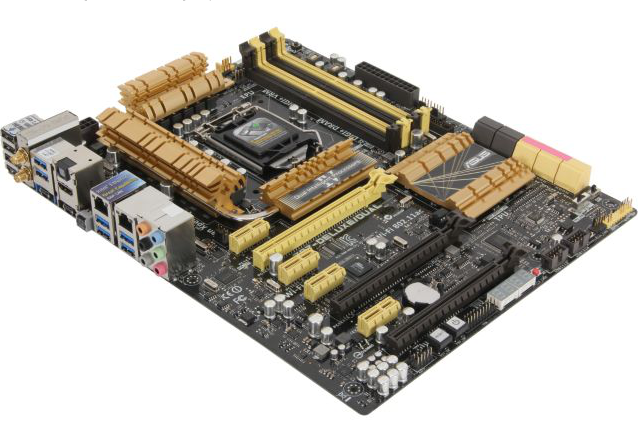
If you use Thunderbolt accessories but aren't an Apple user, some good news: Asus has just announced its Z87-Deluxe Quad, a Haswell motherboard that is the first to include Intel's newest Thunderbolt 2 controller. As we've written before, these controllers double Thunderbolt's theoretical bandwidth from 10Gbps to 20Gbps, which improves support for 4K displays while allowing you to simultaneously drive a display and transfer files.
The new motherboard (which is based on Intel's Z87 chipset) includes two Thunderbolt 2 ports as well as six USB 3.0 ports (plus support for two more via a USB header), four USB 2.0 ports (plus header support for four more), HDMI out, dual Gigabit Ethernet ports, 10 SATA III ports, integrated dual-band 802.11ac and Bluetooth 4.0, and two PCI Express 3.0 ports with 16 lanes apiece. Unfortunately, the premium motherboard also comes with a premium price tag: Newegg currently lists it for a wallet-busting $349.99.
This news comes shortly after the announcement of USB 3.1, a new version of the spec designed to support Thunderbolt-esque maximum speeds of 10Gbps. Thunderbolt and Thunderbolt 2 are available today, while USB 3.1 devices are still months or years away at best, but one of the largest barriers to widespread Thunderbolt adoption has been the ubiquitous availability of the fast-enough, cheap-enough USB spec. The retail availability of Thunderbolt 2 controllers means that we can expect other motherboards and systems that use the spec to follow in the coming months. The most significant of these is the new cylindrical Mac Pro, which will include six of the new ports, but we also suspect that new Retina MacBook Pros could pack Thunderbolt 2 ports to differentiate them a bit from the 2013 MacBook Airs.
reader comments
83